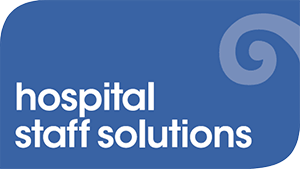How to prevent burnout and prioritise your wellness as a medical professional.
A career in medicine is more than just a job, it’s a lifestyle, and while it’s an incredible privilege to help and support patients and their families through some of their toughest challenges, it can take a toll on you if you let it.
Prevention is always going to be better than cure, so it’s important to know and recognise the signs of burnout. It can manifest in different ways, but the common signs are emotional exhaustion, a lack of motivation, feeling detached or cynical, decreased job satisfaction, withdrawal or isolation, irritability, fatigue, and no longer being interested in the things you normally enjoy.
While there are often several contributing factors, the key causes of burnout are a lack of balance in your life and prolonged periods of high stress and pressure.
Here are a few ways to protect your physical, mental, and emotional well-being while still thriving in your medical career…
Caring for your physical health:
- Do the things you always recommend to your patients – stay hydrated, exercise regularly, eat a balanced diet, and get enough sleep. These are simple yet effective ways of maintaining a level of health and wellness that enables you to perform at your peak.
- Make sure you are resting when you need to. This includes taking regular breaks throughout a shift as well as taking time off work to recharge your batteries. The trick here is to make sure you’re doing that BEFORE you reach a point of burnout.
- It can be so easy to throw yourself into your work, especially when you’re trying to climb the career ladder, but don’t forget to make a life outside of your work. Those moments and memories are what make life so precious and stop you from feeling like your life revolves around your work.
Supporting your emotional and mental well-being:
- Find out what self-care looks like for you and incorporate it into your life as often as you can. You’re a much more balanced and happier human when your cup is full from doing things you enjoy. This can be as simple as reading daily, having a sport or hobby you do every week, try new things until you find something that you truly enjoy and are passionate about.
- Quality relationships add so much value to our lives. Make sure you build a great support network of friends, family, and colleagues around you. Having people you can rely on for emotional support makes all the difference when life gets challenging.
- Reach out for help when you need it. There are so many options and resources available to you such as support groups, health and wellness professionals, and employee assistance programmes. If you are struggling, the key is to seek support early.
- Get comfortable with setting boundaries and learning to say no. Overextending yourself and feeling like you have to please everyone is a slippery slope to burnout and feelings of resentment.
- Compassion fatigue is a common issue among medical practitioners. It can lead to emotional exhaustion, burnout, and decreased job satisfaction if not dealt with. Navigating this is an ongoing process that requires self-awareness, emotional intelligence, and intentional actions. By prioritising self-care, seeking support, and setting boundaries you can manage the emotional toll of your work and continue to provide high-quality care to your patients.
The work you do isn’t for the faint-hearted, it’s demanding and challenging but it’s also fulfilling and rewarding. With the right amount of balance, self-care, and support, you’ll be able to successfully navigate periods of high demand and intensity and thrive throughout your career.

